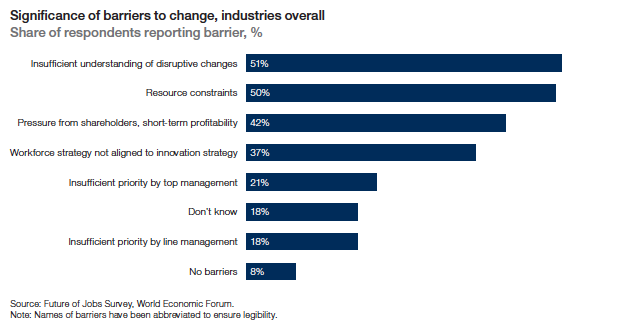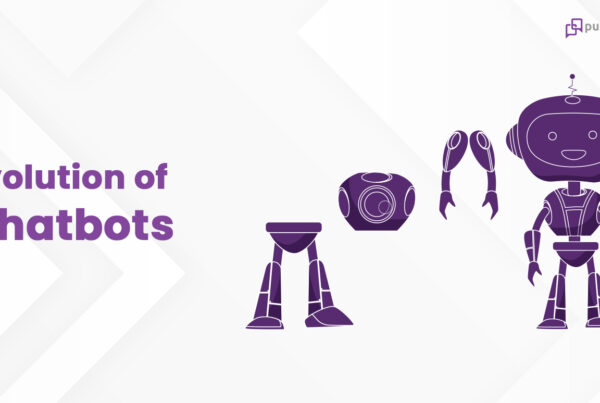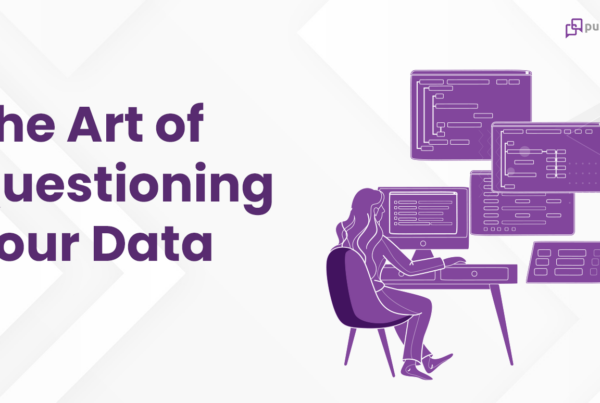
I am often asked this question by people who aspire to start a career in Analytics and Data Science – where should I start? This becomes even more difficult, especially in this world of ours that is crowded by free stuff with many people relying on Google as their primary mentor.
Or, invariably I hear from the few self-motivated that they enrolled in some MOOC programs on Machine Learning or Data Science and throw up jargons like Linear Regression, K Means, Bayesian and the like.
Thanks to the craze towards the ‘sexiest job title‘, many are giving their best shot to jump into the bandwagon of Data Science these days. Most of the well-meant intentions of them, unfortunately, don’t go beyond their first click on the Enrol button and for others, the journey riddled with complex jargons soon starts the down hill slide of their motivation levels. This research on the high levels of attrition with various MOOC programs is an indication of this.
Google Trends does confirm the rise in popularity and interest level for these topics and as you can see from the map, the entire world appears to be caught in a Hadoop fever. People seem to take a break only during the Dec holiday season.


 Not so surprisingly, while the world is yearning for Data Science knowledge, one of the top 5 searched term also happens to be ‘data scientist salary’ and there lies the motivation. 🙂
Not so surprisingly, while the world is yearning for Data Science knowledge, one of the top 5 searched term also happens to be ‘data scientist salary’ and there lies the motivation. 🙂
But, the irony is this. If there is such an insatiable quest for data science knowledge across the globe, why do we keep hearing ‘the lack of talent’ as one of the major factors impeding organizations to adopt a data driven culture? Why do many firms, despite all their technology investments in Data related fields and having some of the brightest minds, continue to struggle to achieve results that has any positive impact on their bottom-line?
If the much sought after data science curriculum as demystified by some of the best minds from Stanford and MIT are available for FREE, why should we ever have a talent shortage? Instead, shouldn’t this be a well-informed world?
As per the World Economic Forum’s Future of Jobs report, the top two barriers to change, are Insufficient understanding of disruptive changes and Resource constraints. In a highly connected world of ours, why are we still such an ill-informed society on these new technology areas despite all the ‘free’ opportunities to learn and more importantly, users flocking with enthusiasm to learn these skills? Is it a question of demand and supply mismatch or is it a question of effectiveness?
disruptive changes and Resource constraints. In a highly connected world of ours, why are we still such an ill-informed society on these new technology areas despite all the ‘free’ opportunities to learn and more importantly, users flocking with enthusiasm to learn these skills? Is it a question of demand and supply mismatch or is it a question of effectiveness?
I feel, one of the major impediment to effectiveness is, it’s not just about what you learn, it is as much about what else you need to learn and what to learn first.
Our sophistication continuously puts us ahead of ourselves, creating things we are less and less capable of understanding. – Nassim Taleb
These are the days when we are bombarded with information and knowledge thrown at us from all directions and like the classic big data metaphor of ‘signal and noise’, even knowledge and learning is going through a similar struggle.
More importantly, any learning has to be purpose-driven. We often forget the fundamental tenet that, necessity is the mother of invention and the genesis of every new technology was driven out of a basic need. No one created these technology tools out of fancy or they had so much time at their disposal. The creators were often pushed to the corners in terms of technology limits which made them innovate. Unless you have a clear appreciation of that need, you end up in a ‘deer caught in a headlights’ like situation when it comes to applying these new concepts in a real-world scenario. For example, to appreciate the need for Hadoop and Map Reduce programming, one needs to have a deep understanding of the distributed computing concepts.
In our pursuit to keep up with the pace of this fast changing world of ours, we often tend to take shortcuts to make up for a deficiency. Going with our times on everything Instant, we are happy with the learning readily served in a cup. We jump steps and we seldom realize we have been so much out of touch with reality and with some of the foundational skills that are gaining much more relevance these days. Most of what we learn today or what is being taught are the mastery of the digital tools and methods, with very little sense for the WHY of these tools.
Learning the right way is tough. As noted in this HBR study on The Making of an Expert,
the development of genuine expertise requires struggle, sacrifice, and honest, often painful self-assessment. There are no shortcuts.
These are the days with gaining prominence of AI, there is lots of apprehension about machines taking over humans on certain jobs, which could very well be the case from a cost and productivity perspective.
There are certain areas where the new technologies can perfectly augment and enhance human capabilities beyond the conventional realm. But, this requires a deeper necessity of some foundational abilities. Data Science and Sensemaking is one such field where a deeper understanding of some of the foundational areas like developing a scientific mindset, understanding the nuances on how humans consume information and make decisions, visual thinking, critical reasoning, statistics and basic math are extremely important.
Very rarely would any data science training teach these foundational skills (tough to learn) and instead quote many of the technology tools (easy to pick up and replicate). So do organizations, under market and peer pressure, often show very little appreciation of this primal need and instead throw technology to solve problems. No wonder the results are counter-productive both in talent creation and application.
With Data Science, learning the foundational skills on analytical thinking is a mandatory step, if not the first step for any reasonable success with data sensemaking.
By the way, here are some interesting reads on this topic from my bookshelf.
- Seeing What Others Don’t by Gary Klein.
- Thinking, Fast and Slow by Daniel Kahneman.
- Closing the Mind Gap: Making Smarter Decisions in a Hypercomplex World by Don Tapscott
- Signal: Understanding What Matters in a World of Noise by Stephen Few.
- The Organized Mind by Dan Levitin.
- A Field Guide to Lies and Statistics by Dan Levitin
- Naked Statistics by Charles Wheelan




